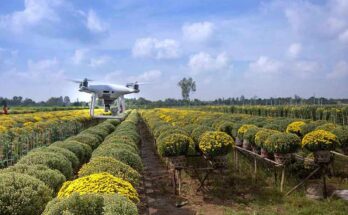Benefits of Artificial Intelligence in urban & rural life in future. Image Courtesy – ABC News
Artificial Intelligence (AI) can potentially bring significant benefits to both urban and rural life. Here are some of the potential advantages AI can offer in these settings:
Benefits in Urban Life:
Enhanced Transportation: AI can optimize traffic management, leading to reduced congestion and shorter travel times. Self-driving cars and AI-powered public transportation can make urban commuting safer and more efficient.
Improved Healthcare: Artificial Intelligence can assist doctors in diagnosing diseases, analyzing medical data, and suggesting personalized treatment plans. AI-powered telemedicine can provide remote healthcare access, especially in densely populated areas.
Read: Controversy on WhatsApp’s Data Protection & Security Information
Smart Infrastructure: AI can be integrated into urban infrastructure, enabling real-time monitoring and predictive maintenance of utilities such as water supply, electricity grids, and waste management systems.
Safety and Security: AI-powered surveillance systems can enhance urban security by identifying potential threats, monitoring public spaces, and aiding law enforcement in identifying criminals.
Personalized Services: AI can analyze consumer behaviour and preferences, leading to more personalized experiences in shopping, entertainment, and services.
Efficient Energy Management: AI can optimize energy usage in cities, reducing wastage and promoting the adoption of sustainable energy sources.
Urban Planning: AI can assist urban planners in designing more efficient and sustainable cities, taking into account factors like population growth, transportation needs, and resource allocation.
Benefits in Rural Life:
Agriculture and Farming: AI can revolutionize agriculture by enabling precision farming techniques, including crop monitoring, irrigation management, and automated machinery, leading to increased yields and reduced resource consumption.
Rural Healthcare: AI-powered medical diagnostic tools can bridge the healthcare gap in rural areas by providing timely and accurate diagnoses and treatment recommendations.
Education and E-Learning: AI can facilitate personalized and accessible education through e-learning platforms, enabling students in rural areas to access quality educational resources.
Rural Connectivity: AI can improve internet connectivity and communication networks in remote regions, enhancing access to information and services.
Environmental Monitoring: AI can assist in monitoring and managing natural resources, detecting environmental changes, and supporting conservation efforts in rural areas.
Disaster Management: AI can aid in predicting and responding to natural disasters, helping to minimize their impact on rural communities.
Agricultural Advisory: AI-powered advisory systems can offer real-time guidance to farmers regarding weather patterns, market trends, and best practices, improving decision-making.
It’s important to note that the successful implementation of AI in both urban and rural settings requires addressing challenges related to data privacy, AI bias, infrastructure development, and workforce readiness. However, with thoughtful planning and responsible deployment, AI can play a transformative role in enhancing the quality of life for people in both urban and rural areas.





